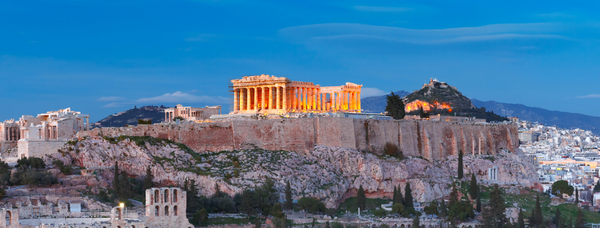And I’ll tell you how that opera is Greek….
Posted by Cindy Battisti on 04 29 2016
So, in anticipation of seeing the Met Live in HD of Elektra, I wanted to do a little reading up to give me some background. But unexpectedly, I found a lot of opera plots woven in based on Greek legend and mythology! Here is a brief run down of the story and the operas that relay them. Source: Wikipedia
Once upon a time, the Greeks went to get Helen back from Troy (Opera:
Les Troyens).
Agamemnon was one of the
big time Greek/Mycenaean generals. Contrary
to Les Troyens (Act 2), the seer Cassandra did not rally all the women to kill themselves and
die right there. After much nasty travail, she becomes concubine to Agamemnon
and bears him twin sons on the journey back to Greece.
Aside: Cassandra’s cousin Aeneaus escapes from Troy to found Italy after
breaking Dido of Carthage’s heart. (Acts 3-4 of Les Troyens and the opera: Dido
and Aeneaus)
Agamemnon and Cassandra get to Greece and are promptly killed (with the 2 twins) by his wife Clytemnestra and/or her lover Aegisthus – there are different versions.
SO, obviously, this disturbs Agamemnon’s kids, Elektra and Orestes who plot to avenge their father’s death (Opera: Elektra). They are successful, but the furies disapprove and hound Orestes from place to place.
Important information: Elektra and Orestes have a sister, Iphigenia. They think she is dead, having been sacrificed to Artemis, but Artemis whisked her away to her temple in Tauris to be a priestess.
Orestes in his wanderings with his friend Pylades ends up in Tauris (Opera: Iphigenia in Tauris) eventually they recognize each other, head home and Elektra marries Pylades.
Somewhere along the way, we find Elektra causing trouble in Mozart's opera Idomeneo.
So wow - who knew this was all connected (Well, OK probably people knew, but I didn’t). Someone should do a cycle of these operas together sometime like the Ring!


